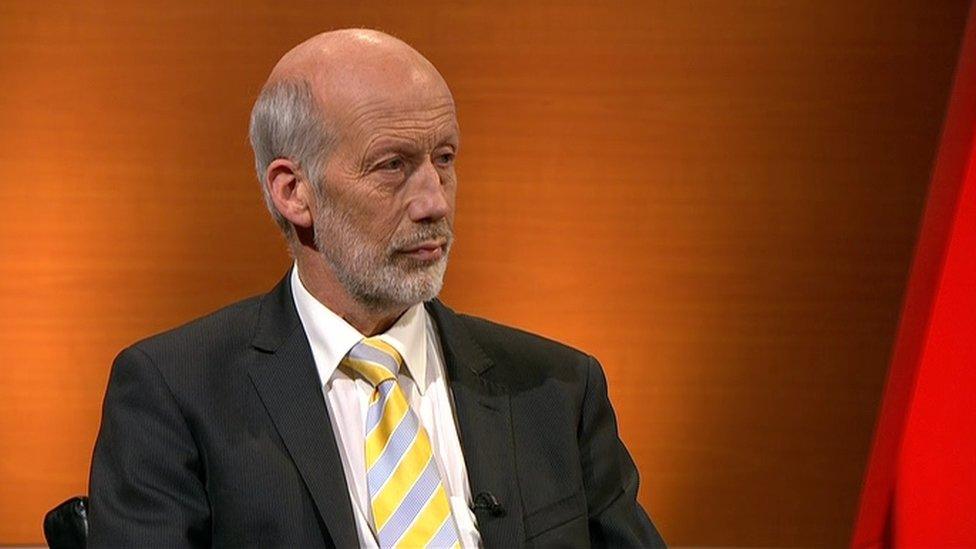NI abortion law: New draft guidelines may be out of date due to court ruling
- Published

The new but as yet unpublished abortion guidance makes no specific reference to pregnancies resulting from sexual crimes
Northern Ireland's new draft guidelines on abortion may have gone out of date hours before ministers received them, Stormont's justice minister has said.
They coincided with a court ruling that Northern Ireland's abortion legislation is in breach of human rights law.
On Monday, Belfast High Court ruled abortion should be allowed in cases of sex crime and fatal foetal abnormality.
But the guidelines still advise fatal foetal abnormality alone is not grounds for abortion. They do not mention rape.
'Conflicting issue'
The 1967 Abortion Act does not apply to Northern Ireland and it has much stricter abortion legislation that the rest of the UK.
The long-awaited guidelines, intended to provide clarity to health care staff, were drawn up by Stormont's Health Minister Simon Hamilton.
Justice Minister David Ford told BBC NI's The View programme he received a copy of the document on Monday, shortly after the judge's ruling.
"In the face of the court decision, we've now got a conflicting issue of guidance which seems to me to be out of date four of five hours before it was circulated," Mr Ford said.

Justice Minister David Ford told BBC NI's The View programme he received a copy of the new draft guidelines on abortion on Monday, shortly after a High Court judge ruled Northern Ireland's existing legislation was in breach of human rights law
The BBC has seen the new guidelines, which make it clear that abortions are only lawful if a woman's life is at risk or there is a permanent or serious risk to her mental or physical health.
That reflects a document published two years ago by Mr Hamilton's predecessor Edwin Poots.
Mr Poots's guidance stated that "foetal abnormality is not recognised as grounds" for a termination.
'Legal limbo'
Mr Hamilton's version clarifies that the impact of a foetal abnormality on a woman's physical or mental health may be taken into account when health professionals recommend options for her clinical care.
His new guidance makes no specific reference to pregnancies resulting from sexual crimes, such as rape or incest.
Mr Hamilton's advice has not yet been published, but the director of the Royal College of Midwives (RCN), Breedagh Hughes, agreed with Mr Ford that it may already be out of date.
"I haven't seen the guidance that's been circulated to the [Stormont] Executive, it hasn't been released to the service yet, so midwives still don't have anything," Ms Hughes told BBC Radio Ulster.
"But I do appreciate that it's likely to need updated very quickly, if the judgement that was made on Monday is, in fact, ratified by the court on 16 December, because my understanding is that there's somewhat of a legal limbo at the moment."
The RCN director added: "At the moment there are about 1,500 midwives working out there, at the coalface, with no guidance whatsoever at all, so from our point of view, some guidance is probably better than none."
'Morally wrong'
The High Court legal challenge to the abortion law was brought by the Northern Ireland Human Rights Commission.
International human rights organisation Amnesty International said Monday's ruling was a "hugely significant step".
However, anti-abortion groups said the ruling had been "profoundly disquieting" and "gravely morally wrong".
Mr Ford told The View that Mr Hamilton's guidelines "may well be a fair reflection of the law if it hadn't been for that judgement".
"I'm still looking at the detail of the guidance but I think it is an improvement on what we had," he added.
- Published1 December 2015

- Published1 December 2015

- Published30 November 2015
